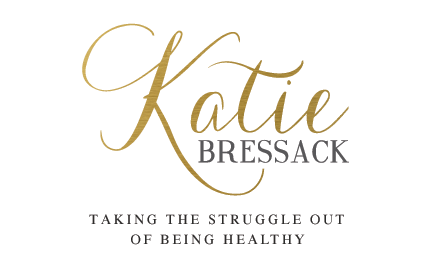The combination of a diet full of veggies, fruits and whole grains along with daily movement of the body is key to a healthy lifestyle.
Adding in meditation, yoga, massage and acupuncture only helps support a healthy mind, body and spirit.
To educate you about all aspects of health, we are taking a moment to spotlight people who are creating healthier lives with a holistic approach.
Meet Catherine Fugelsang, one of the many reasons I love and miss NYC. I first met Catherine in the winter of 2010, when the snow was falling and my body temputure was frigid. I have always been colder than most, I tend to wear sweatshirts in the summer. She helped my body reach a warmer/normal temperture. I continued to go to her for help with my sinuses. She is one of the many reasons why I am so healthy today. I highly recomend all of you in the NYC area to visit her.catherinefugelsang.com
What are the health benefits of acupuncture?
Katie, first I just want to say thank you for including me in this new series you are starting! I think it is a wonderful idea and I am excited to be a part of it.
Acupuncture and Chinese medicine not only treats the symptoms but also the underlying cause of a health ailment. For example, if a patient is coming in for seasonal allergy relief, the treatment is not only focusing on alleviating their congested sinuses, red dry eyes and scratchy throat, but also works to support and strengthen their immune system so their allergy symptoms will decrease or disappear all together. This concept of treating the symptoms and underlying cause is incorporated into every acupuncture treatment.
How often do you recommend getting acupuncture?
How often a patient receives acupuncture is very much dependent on what they are coming in for, whether the condition is acute or chronic, and how severe the complaint. A patient may come in with an acute back spasm requiring 2-3 treatments a week for 1-2 weeks. Another person may have chronic arthritis they have had for 20 years. Their treatment protocol might be something along the lines of 1 treatment a week for 2 months, and then reassess at that point how often they need maintenance treatments. There are other patients who come in with no critical complaints, but use acupuncture and Chinese medicine as preventative medicine by getting treatments once a week to once every couple of months.
What fascinates you about acupuncture?
What fascinates me about acupuncture and Chinese medicine is how beautifully simple it can be while at the same time being so intricate, intelligent, and complex. To have a patient come in who has been suffering from migraines for 10 years, 2-3 times a week, has gone to numerous doctors, gone through a myriad of tests, with no findings; to have after 2-4 acupuncture treatments the number, duration and severity of the headache decreases by 90% – is remarkable. Not only does the patients migraines essentially end, but their digestion, sleep and other aspects of their health also greatly improve.
This is not only good for the patient, but also for public health care and its impact on cost. Before the patient came to acupuncture, they went to numerous doctors where various expensive tests were completed, but there was no outcome. Their headaches did not stop and there was no definitive diagnosis. After coming to acupuncture two times, the patient was experiencing 90% less of the symptoms they had originally come in with, and the cost of the treatment is a miniscule fraction of what the laboratory tests and doctors visits cost.
What would be the one thing you wish everyone knew about acupuncture?
The most important thing about acupuncture is not why it works, but how amazingly well it works. When can spend millions of dollars trying to answer the question “why”, but what is important is that people get better, and even more importantly, stay healthy.
Why did you decide to become an acupuncturist?
After I graduated from undergrad, I was working for a non-profit organization doing various types of administration and development work. During that time I also completed prerequisite course work to go back to school for nursing with the ultimate goal of becoming a midwife. But the non-profit I worked at offered acupuncture as one of their services. Being an employee there I was able to get acupuncture for free and I went often. I first started going because for years I had been dealing with an irregular menstrual cycle. After just one month of acupuncture and herbal therapy, it was regular. This was done without having to go on birth control, which is the typical western prescription, and what I was trying to avoid.
After my own experience with Chinese medicine, I started researching what else it could help. What I found was acupuncture is essentially good for just about anything, whether it is done by itself or used in accompaniment with alopathic (western) or another type of holistic medical treatment. What I also found is there are little to no side effects and it can be used for acute or preventative treatment. The medicine really encapsulated what I believed health and healthcare should be. In the end I decided to go to school for Chinese medicine.
What is your favorite part about being an acupuncturist?
How quickly a patient can start feeling better. Again, depending on what the patient is coming in for, this can take longer for some than others. When a patient comes in who has thrown out their back and feel 75% better after the treatment; someone comes in with a the beginning of a cold and are fine the next day; another person comes in who has been dealing with IBS for 4 years and after 3 treatments is feeling 95% better, all of these instances makes me happy. And in many of these situations we are doing acupuncture, maybe herbal therapy and looking at some lifestyle changes. All of it is very simple but it has a profound effect on the patients health and well-being.
How do you incorporate health/wellness into your acupuncture practice?
Beyond acupuncture and other modalities of Chinese medicine (herbal therapy, cupping, tui na and qua sha), I really work with the patient on any lifestyle changes that would assist in their getting better and overall increase their health quality. One of the most important aspects of someones health is of course what they are eating. This is something I always look, and if need be, assist the patient in making sustainable diet changes that work best for them.
On a more personal level, part of bringing health and wellness into my practice is making sure that I am healthy. Living in New York, having a busy life, this can many times be hard, but I know it is very possible. It is also important for me to have a balance with my life because if I am tired and burnt out, then I am not able to treat my patients to the best of my ability. There are always things we can be doing, but it is important to stop and work on self care. Sleep, eating good food cooked at home, spending time with family and friends, being outside and physically active are very important aspects of a health and wellness. I realize this is not possible for every person, every day, but even just taking 15 minutes a day for yourself to do nothing, is good.



.png)
.png)
.png)